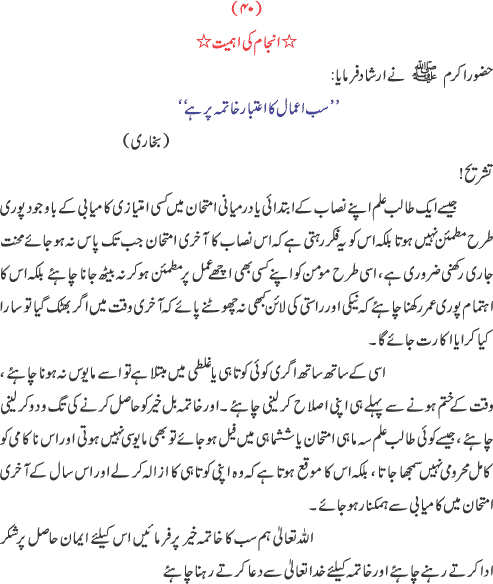A Beautiful story about QURAN.
Why do we read Quran, even if we can't understand a single Arabic word???? This is a beautiful story.
An old American Muslim lived on a farm in the mountains of eastern Kentucky with his young grandson. Each morning Grandpa was up early sitting at the kitchen table reading his Quran. His grandson wanted to be just like him and tried to imitate him in every way he could.
One day the grandson asked, "Grandpa! I try to read the Quran just like you but I don't understand it, and what I do understand I forget as soon as I close the book. What good does reading the Qur'an do?"
The Grandfather quietly turned from putting coal in the stove and replied, "Take this coal basket down to the river and bring me back a basket of water."
The boy did as he was told, but all the water leaked out before he got back to the house.
The grandfather laughed and said, "You'll have to move a little faster next time," and sent him back to the river with the basket to try again. This time the boy ran faster, but again the basket was empty before he returned home. Out of breath, he told his grandfather that it was impossible to carry water in a basket, and he went to get a bucket instead.
The old man said, "I don't want a bucket of water; I want a basket of water. You're just not trying hard enough," and he went out the door to watch the boy try again.
At this point, the boy knew it was impossible, but he wanted to show his grandfather that even if he ran as fast as he could, the water would leak out before he got back to the house. The boy again dipped the basket into river and ran hard, but when he reached his grandfather the basket was again empty. Out of breath, he said, "See Grandpa, it's useless!"
"So you think it is useless?" The old man said, "Look at the basket."
The boy looked at the basket and for the first time realized that the basket was different. It had been transformed from a dirty old coal basket and was now clean, inside and out.
"Son, that's what happens when you read the Qur'an. You might not understand or remember everything, but when you read it, you will be changed, inside and out. That is the work of Allah in our lives."
Prophet Muhammad (pbuh & his family) says: *"The one who guides to good will be rewarded equally"*
Why do we read Quran, even if we can't understand a single Arabic word???? This is a beautiful story.
An old American Muslim lived on a farm in the mountains of eastern Kentucky with his young grandson. Each morning Grandpa was up early sitting at the kitchen table reading his Quran. His grandson wanted to be just like him and tried to imitate him in every way he could.
One day the grandson asked, "Grandpa! I try to read the Quran just like you but I don't understand it, and what I do understand I forget as soon as I close the book. What good does reading the Qur'an do?"
The Grandfather quietly turned from putting coal in the stove and replied, "Take this coal basket down to the river and bring me back a basket of water."
The boy did as he was told, but all the water leaked out before he got back to the house.
The grandfather laughed and said, "You'll have to move a little faster next time," and sent him back to the river with the basket to try again. This time the boy ran faster, but again the basket was empty before he returned home. Out of breath, he told his grandfather that it was impossible to carry water in a basket, and he went to get a bucket instead.
The old man said, "I don't want a bucket of water; I want a basket of water. You're just not trying hard enough," and he went out the door to watch the boy try again.
At this point, the boy knew it was impossible, but he wanted to show his grandfather that even if he ran as fast as he could, the water would leak out before he got back to the house. The boy again dipped the basket into river and ran hard, but when he reached his grandfather the basket was again empty. Out of breath, he said, "See Grandpa, it's useless!"
"So you think it is useless?" The old man said, "Look at the basket."
The boy looked at the basket and for the first time realized that the basket was different. It had been transformed from a dirty old coal basket and was now clean, inside and out.
"Son, that's what happens when you read the Qur'an. You might not understand or remember everything, but when you read it, you will be changed, inside and out. That is the work of Allah in our lives."
Prophet Muhammad (pbuh & his family) says: *"The one who guides to good will be rewarded equally"*















